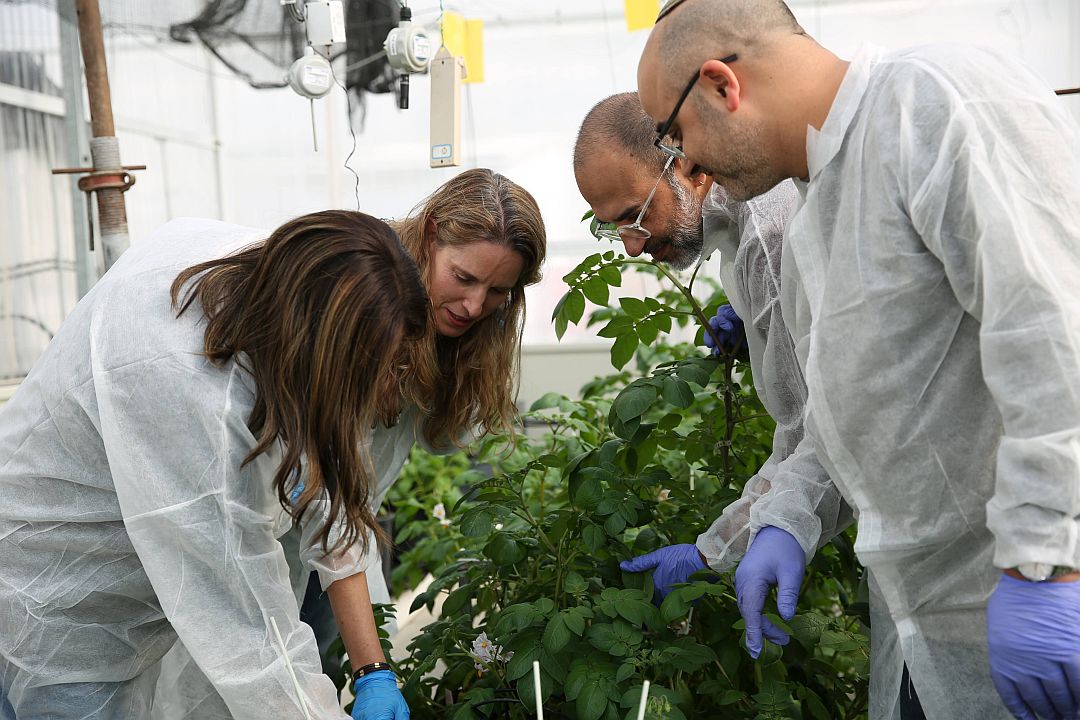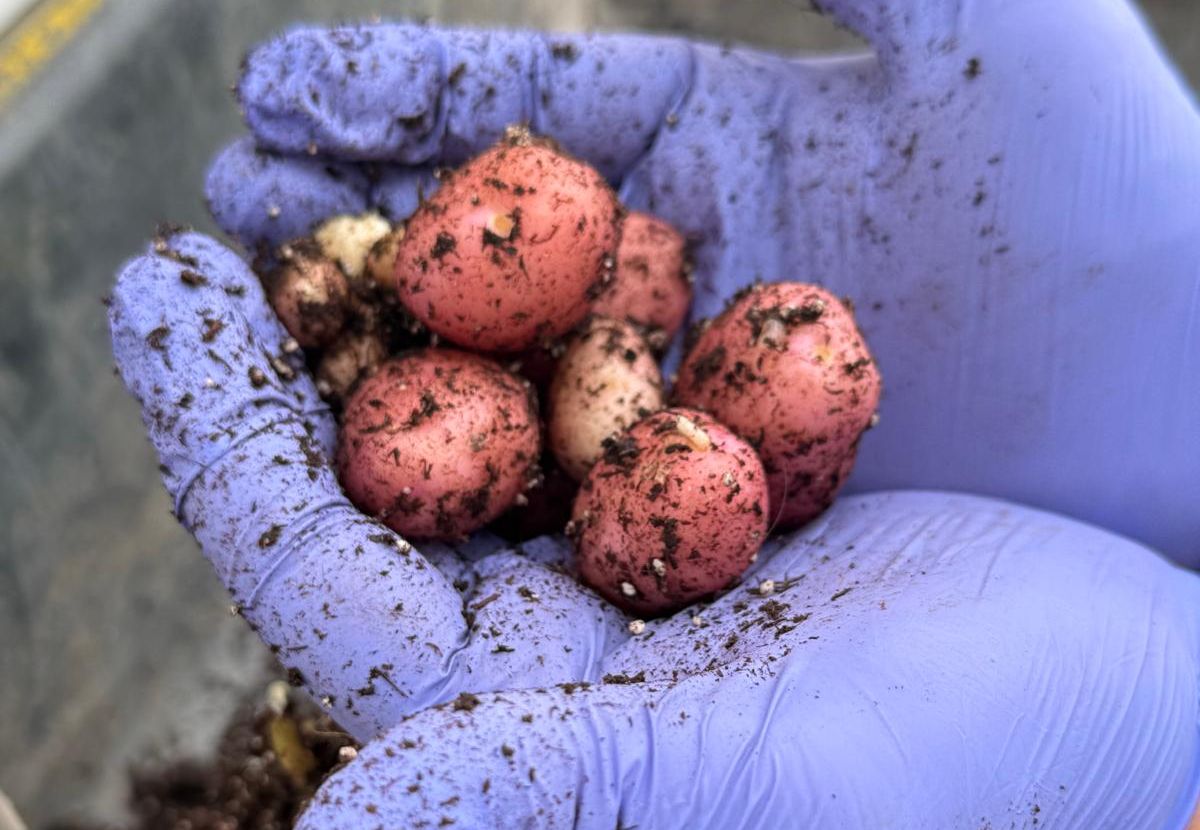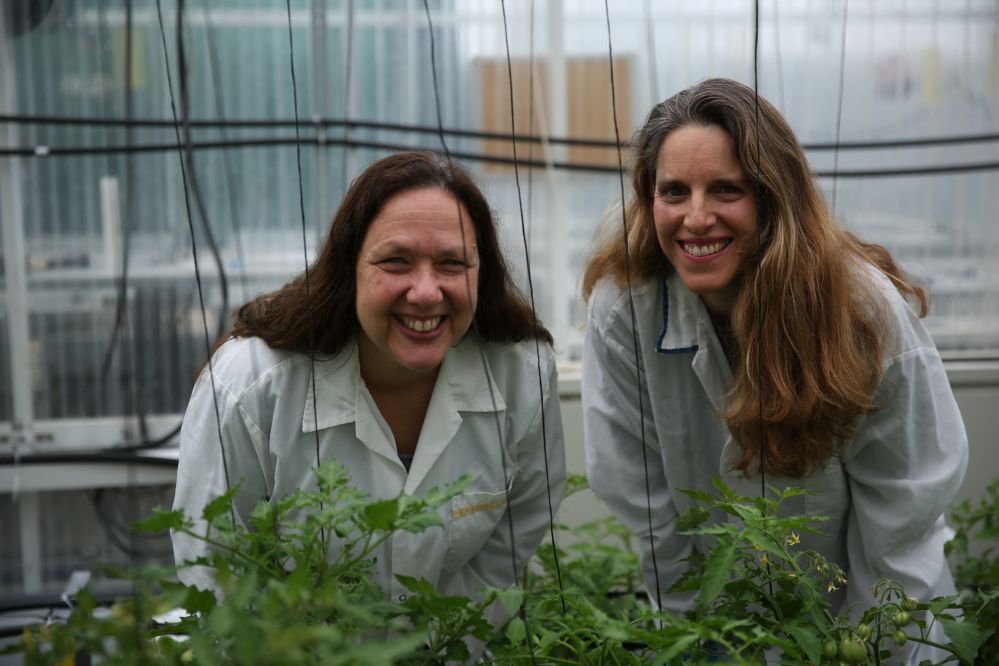Finally Foods—a molecular farming startup producing dairy proteins in potatoes—is gearing up for its first field trial in southern Israel next week, less than a year after launch.
“One of the key challenges in molecular farming is the lengthy time-to- market,” said cofounder Dafna Gabbay. “Finally Foods is demonstrating that molecular farming can efficiently produce high-value proteins at scale in record time by drastically reducing the trial-and-error time.”
The firm, led by Gabbay and Dr. Basia J. Vinocur, leverages AI-powered technology from computational biology company Evogene (a key shareholder in the firm) that it claims can dramatically speed up and optimize the process of developing plants expressing high levels of casein.
By modeling biological systems computationally using tech developed at Evogene, Finally Foods has been able to simulate the effects of different modifications on the potato plant’s growth, development, and protein expression levels in order to optimize the tech before moving to greenhouse trials, and “real-world” testing in the field, said Gabbay.
She added: “This field trial is a major validation point for Finally Foods and will allow us to start working with dairy companies to develop dairy products with our casein. The integration of AI has not only significantly accelerated development but enables us to get high levels of functional natural casein in a potato and a highly efficient and cost-effective extraction process.”
Molecular farming vs precision fermentation
While several companies now engineer microbes to produce casein via precision fermentation, Finally Foods and other molecular farming startups argue that the unit economics of growing such proteins in genetically engineered plants—which require less capex and opex—are more favorable.
Once a new plant variety has been developed, meanwhile, scaling up is potentially cheaper and easier than it might be with precision fermentation, which presents new challenges every time you move to a larger fermenter, Gabbay told AgFunderNews. “Scaling up in molecular farming just means having more fields.”
That said, the regulatory pathway is potentially more burdensome, with approvals needed both to grow the GM plants and to market the ingredients they produce, she acknowledged. US regulators have also warned startups in the field that expressing animal proteins such as egg and dairy proteins in genetically engineered crops such as soybeans will require strict allergen management.

Downstream processing and purification
But why use potatoes as a host?
One key advantage over soybeans, claimed Gabbay, is that the downstream processing and purification process for extracting and purifying casein proteins from potatoes is simpler. Finally Foods is also developing varieties specifically with downstream processing in mind, she said.
“We are not aiming to supply the market with a mixture of casein proteins and other proteins from the host plant. We produce clean, pure casein proteins without DNA from the genetically engineered host so that the final product is not a GMO.”
While potatoes typically only have around 2% protein, “We think they could potentially make 10% or even 20% protein,” claimed Gabbay. “But we believe that even with the expression levels we’re getting now in our first generation plants, we could be commercially viable [at scale].”
She added: “The first goal of the field trial is to have enough potatoes to scale up our extraction process so that we can get samples to work with on applications both internally and with partners. But we are also implementing technical practices to optimize growing conditions to allow increased levels of proteins in the tubers.”
Expressing multiple casein proteins in one plant?
When casein molecules are formed in cow’s milk, they fold up into a spherical “micelle” structure in which individual proteins—alpha 1, alpha 2, beta, and kappa—are suspended in a solution along with calcium and other minerals. This structure is key to the functionality of the casein.
Unlike firms using microbial expression systems, where each individual casein protein has to be produced separately by a different microbial strain, molecular farming companies can potentially produce more than one casein protein in the same plant, said Gabbay.
“We can produce all four [casein proteins in one plant], but right now we are testing plants that produce different combinations of casein proteins.”
Notably, she claimed, the casein proteins also form a micellular structure inside the potato. “The whole brilliance of molecular farming is that the micelles are done [formed] inside the plant.”
Market drivers for cow-free dairy
Asked why dairy and CPG companies are interested in buying dairy proteins produced in plants or bioreactors, she said: “I don’t think that there is any major dairy company in the world that isn’t researching cow-less products, whether it is because of climate and sustainability reasons or because of concerns about meeting demand in the future. Avian flu in California affected cows as well [as chickens], so there are also concerns there.
“I think in future, we’ll have dairy from cows, from fermenters and from plants. Our goal is to be in the market by, I would say, no later than 2028.”

What is molecular farming?
There are varying definitions, but companies deploying plant molecular farming are typically genetically engineering plants to make them produce something they wouldn’t typically make (think vaccines made in tobacco, growth factors made in barley, dairy proteins expressed in soybeans or lettuce, chymosin made in safflower).
Rather than modifying the plant to confer a beneficial agronomic property such as disease resistance, stress tolerance, increased yields, or improved nutrition (e.g., purple tomatoes), molecular farming companies use plants like bioreactors in order to produce specific high-value ingredients.
In recent years, multiple players have emerged producing so-called ‘animal-free’ proteins through molecular farming, which they argue is more sustainable, ethical, and potentially more efficient than industrialized animal agriculture.
Players to watch in the molecular farming space include:
- Dairy proteins: Mozza, Alpine Bio (USA), Miruku (New Zealand), IngredientWerks (USA), Veloz Bio (Spain), Pigmentum, Finally Foods (Israel)
- Growth factors: Bright Biotech (UK), ORF Genetics (Iceland), BioBetter (Israel), Tiamat Sciences (USA), Core Biogenesis (France)
- Meat proteins: Moolec Science (registered in UK), IngredientWerks (USA), Kyomei (UK)
- Egg proteins: PoLoPo (Israel), Veloz Bio (Spain)
- Misc – incl sweet proteins, Mogroside V, enzymes, albumin: GreenLab (USA), Elo Life Systems (USA), Forte Protein (USA)
- Vaccines, therapeutics: Baiya Phytopharm (Thailand), Protalix Therapeutics (Israel), Bio Applications (Korea), KBio (USA), Eleva (Germany), InVitria (USA), Agrenvec (Spain) Diamante (Italy)





